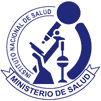Story of Processes Involved in Clinical Trial Legislation in Peru
In Peru, the National Institute of Health is the authority in charge of authorizing clinical trials and ensuring the adherence to the regulations in force and other related norms that rule the conduction of these researches. On July 29, 2006, by means of Supreme Decree No. 017-2006-SA., the Clinical Trials Regulation was approved, and on June 08, 2007, by means of Supreme Decree No. 006-2007-SA., its amendment, which is currently in force in Peru, was approved.
Background
1981. Ministry Resolution No. 0212-81-SA/DVM, dated December 14, 1981, and legally supported by Law Decree No. 17505, Health Code, approved the technical document entitled “Norms for the Use of Drugs in Clinical Trials”. This resolution is currently annulled.
1997. General Health Law No. 26842, dated April 15, 1997. In Preliminary Title, Article XV, established that “the State promotes the scientific and technological research in the field of health”.
In Title II, it established a new legal framework which governs the duties, restrictions and responsibilities of health professionals in relation to the Health of third parties.
Article 28° of this law states that the experimental researches on persons should adhere to the special legislation on the matter and to the ethical principles of the Declaration of Helsinki and subsequent declarations that update those principles.
Article 15° letter d) establishes that the Law regulates the rights of persons. Thus, it establishes that every health service user is entitled to not being a research subject for the application of products or treatment without being duly informed about the experimental status of the same, the risks he is taking and without his/her prior written consent or that from the person legally entitled to provide it (if applicable or if the person is not able to provide his/her authorization).
Until December 2002, the Authorization for Clinical Trials in Peru, was in charge of the General Directorate of Health for People (Dirección General de Salud a las Personas) of Health Ministry, pursuant to Supreme Decree No. 002-92-SA. This instrument was annulled by the single Final Provision of Supreme Decree No 014-2002-SA, which established that the General Direction of Health for People was in charge of preparing norms and authorizing the conduction of the clinical trials in human beings.
2002. By means of the Supreme Decree No. 001-2002-SA, dated February 27, 2002, the Single Text of Administrative Procedures (TUPA) of the Ministry of Health was approved. This instrument includes the Procedure No. 4 “Authorization for the conduction of Clinical Trials”. This norm was amended by Article 1° of Ministry Resolution No. 089-2003-SA/DM, dated January 24, 2003. This Article set forth that the “Authorization for the conduction of Clinical Trials” procedure, included in the Ministry of Health’s TUPA, corresponding to the General Direction of Health for People, would be directed by the National Health Institute
2003. Law No. 27657 of the Ministry of Health, dated May 29, 2003, established that the National Institute of Health is a Decentralized Public Entity of the Ministry of Health, which is intended to develop and disseminate the research and technology investigation in several fields of health.
2003. Supreme Decree No. 013-2003-SA, Regulation of Law No. 27657 – Ministry of Health’s Law, that pursuant to Article 34°, approved on November 22, 2003, establishes that the National Institute of Health is the entity responsible for proposing policies and norms, promoting, developing and disseminating the scientific and technological research and providing health services in the public health sector; likewise, according to letter a) of the same article, it develops and disseminates the scientific and technological research in health. For these reasons, the National Institute of Health, a Decentralized Public Organism, is authorized to apply Procedure No. 4 “Authorization for the conduction of Clinical Trials”, included in the Ministry of Health’s TUPA.

